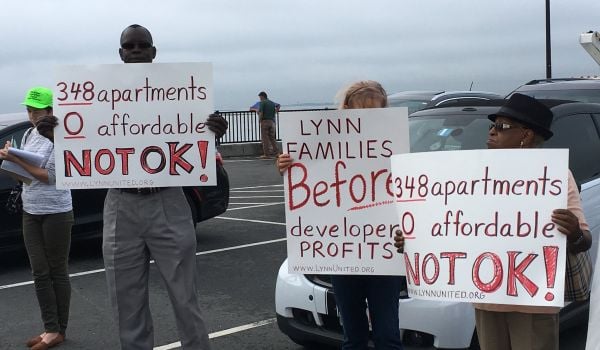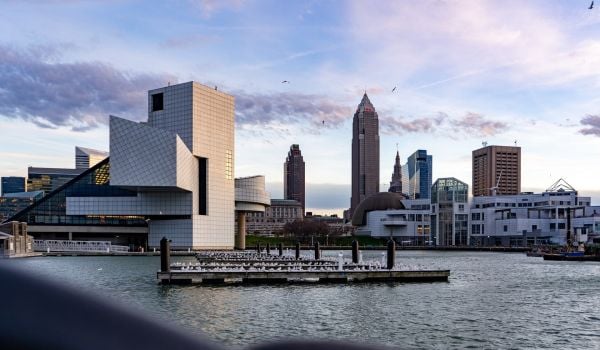Every city in the U.S. has a chief elected leader. Many cities have a chief technology officer. Several cities have a chief resilience officer. But, how many cities have a chief scientist?
In an era of climate change and limited resources, isn’t this an idea whose time has come?
I suggested this idea at the recent CitiesIPCC 2018 Conference in Edmonton, Canada, before a friendly audience of mayors, planners, policy makers, researchers, and yes, scientists to tentative applause.
Can a fully “smart city” exist without a scientific understanding of its complexities and contradictions? With rising sea levels and more severe storms, droughts, heat waves, cold snaps and other weather calamities, is a mayor equipped to make long-term decisions without the advice of a scientist?
Imagine you’re a mayor and your city is about to be hit by a powerful hurricane. You call your chief of police and emergency management lead, you get briefed by experts on energy, transportation and shelters. I bet you’ll even have a staffer recommend which fleece to wear.
But where is the scientist? Wouldn’t you want to know why this is happening, and more importantly, how to mitigate for or adapt to future events? How about the potential ramifications on future weather patterns, land formations, infrastructure, etc.?
In this era of professionalism, most cities have cabinet officials with backgrounds that include science and technology. However, because of the complex nature of research and the inherent conflicts between short- and long-term decision-making, wouldn’t it make sense to bring in an expert who can sift through the data and propose alternatives grounded in reason?
When I shared this idea on Twitter, scientist Emma Terama responded, “The first city to hire #ChiefScientist will be a frontrunner …. great idea” and challenged the city of Helsinki to consider the idea. Copenhagen resident Lykke Leonardsen wasn’t sure what difference a City Scientist would have. “Science is a lot of things and I fear it would be difficult to use for cities.” To which Terama responded, “I believe as with govt. depts. it’s about sending a msg.”
Emma also reminded me of the importance of social scientists. This was the other interesting thread coming out of CitiesIPCC — that addressing climate change will also require modifications in human behavior. Sounds reasonable, but how does a scientist used to crunching numbers and testing hypotheses take human factors into account?
The good news is that several mayors already get it. Don Iveson, mayor of Edmonton, convened the first-ever cities conference on climate change to ask mayors to join the Edmonton Declaration that commits city leaders to urgent, evidence-based action. This bold call to action challenges cities of all sizes to seriously consider the role of scientific research and data in building ambitious climate action plans, and it prioritizes science-based decision-making to reinforce the targets of the Paris Climate Accord Agreement.
Drafted in partnership with the Global Covenant of Mayors for Climate and Energy, the Edmonton Declaration is the result of a Mayors Summit where city leaders from Canada, Ecuador, India and the United States joined with major city networks such as C40, UCLG and ICLEI in addition to key members of the scientific community. Mayor Iveson and other mayors will bring this declaration to the ICLEI World Congress in Montreal this June to gain wider approval.
“We know this is ambitious, but that’s the type of leadership we need right now,” says Mayor Iveson. “While nations plan, cities take action. It’s time for cities to take the mantle of climate leadership and employ the solutions that will provide a sustainable future for the generations to come.”
Recognizing that by 2050, more than two-thirds of humanity will be living in cities, ICLEI — Local Governments for Sustainability has made a major commitment to this effort. “Science gave us the wake-up call needed to get the Paris Agreement done,” says ICLEI Secretary General Gino Van Begin. “Now we must harness its potential for innovation to address the very present challenges that cities face in making the low-carbon transition happen. City leaders are already taking important steps in this direction, and we are calling on the scientific community to work with us to bridge gaps and identify evidence-based solutions for the present and future of our communities.”
This first CitiesIPCC Cities and Climate Change Science Conference was organized by the city of Edmonton and the Intergovernmental Panel on Climate Change (IPCC) together with nine partners: C40, Cities Alliance, Future Earth, ICLEI, United Cities and Local Governments (UCLG), UN Environment, UN-Habitat, UN Sustainable Development Solutions Network (SDSN) and World Climate Research Programme (WCRP). With this much brainpower applied to the issue, the future looks incredibly bright.

Tom was president, CEO and publisher of Next City from May 2015 until April 2018. Before joining Next City, he directed the Center for Resilient Design at the College of Architecture and Design at the New Jersey Institute of Technology. Prior to that, he ran the Regional Plan Association’s New Jersey office, and served as a senior adviser on land use for two New Jersey governors. Tom is a licensed professional planner, and a member of the American Institute of Certified Planners, as well as an adjunct professor at the New Jersey Institute of Technology, where he teaches land use planning and infrastructure planning.


_920_509_80.jpg)














